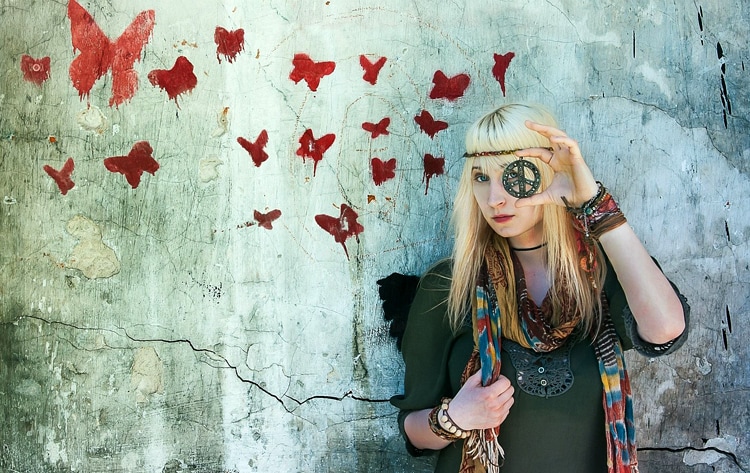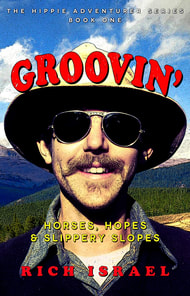In just a few days, a historically unpopular president-elect will be inaugurated. As we brace ourselves for perhaps the most radical leadership transition our country has ever seen, I know I’m not alone when I ask myself, “How did this happen?”
How could we as a people ignore the very ideals (honesty, integrity, freedom, equality) we hold dear? After mulling over this subject many uncomfortable hours, I ask myself another question: “Could something positive come out of this?” I’m reminded of another tumultuous time—the 1960s—during my early hippie days. Most of society then was much more rigid that it is today. In general, it was taboo to behave outside socially accepted norms. No one talked freely about sex, spoke out against the government, wore unusual clothing or hairstyles, or questioned religion. There was a great deal of pressure to follow a prescribed course of life: school, career, marriage, children, house with a white picket fence. Many young folks began to question the dictates of society, and with the introduction of mind-expanding drugs, they realized that more was going on than met the eye, that there were better, freer ways to live. As they saw through society’s ill-conceived concepts, some of them rebelled. (Unfortunately, as we are seeing today, a whole lot of folks didn’t jump on that train.) It’s a common belief that drugs created the free thought that backed the hippie movement. I have a different view. I believe human beings are basically good, sensitive, and empathetic. When we are born into this world, we don’t have a religion, political affiliation, nationality, or creed. We are simply loving beings. When I was growing up in the 1940s and ’50s, we were taught to respect authority or face punishment. We were told that “children should be seen and not heard.” Our parents, teachers, and peers dictated the way we thought and looked at the world. So drugs didn’t create the hippies’ aversion to war and the establishment, but rather they helped us see who we were at our core. When we discovered we weren’t alone, that others felt the same way, we were emboldened to express ourselves! We stood behind our battle cry “Make love, not war” and marched into the world intent on change. And plenty of things needed changing, fueling the antiwar movement, the civil rights movement, the Native American movement, free speech, and free love. And we also needed to challenge the conventional mindset that didn’t place a priority on enjoying full, heartfelt lives. Psychedelic rock bands created anthem after anthem to fuel our movements. Bob Dylan’s The Times They Are A-Changin’, The Who’s My Generation, The Byrd’s Eight Miles High, everything the Beatles did or sang, and many other similar beautiful gifts urged us on. But it wasn’t a matter of drugs influencing us—they just revealed who we were—pure love! So what is a hippie? Is it somebody with long hair and beads? I don’t think so. In my memoir, Groovin’, I talk about visiting friends in Kansas City during the 1967 Summer of Love. The only people I saw with long hair at the time belonged in a rock band—but for sure my short-haired buddies were hippies too. Even though I decided to shave off my mustache one morning about twenty years ago, it didn’t change who I was. If you believe in justice, equality, peace, honesty, and compassion, in my mind, you’re a hippie too. Now I’m excited to see what a new generation of hippies can accomplish when confronted with this blatant assault on decency and the values honorable people hold dear. Will we fight the institutions that threaten to diminish our personal freedoms? I believe our diversity-embracing millennials and gen Xers will surprise us. And unlike in the ’60s, they will be backed up by many of us geezers who haven’t forgotten what it means to stand up for what is right. Peace!
0 Comments
Leave a Reply. |
SIGN UP for Rich's blog & receive a FREE video guaranteed to put a smile on your face!
Popular Posts
Youth to the Rescue Categories
All
Archives
February 2019
|


 RSS Feed
RSS Feed